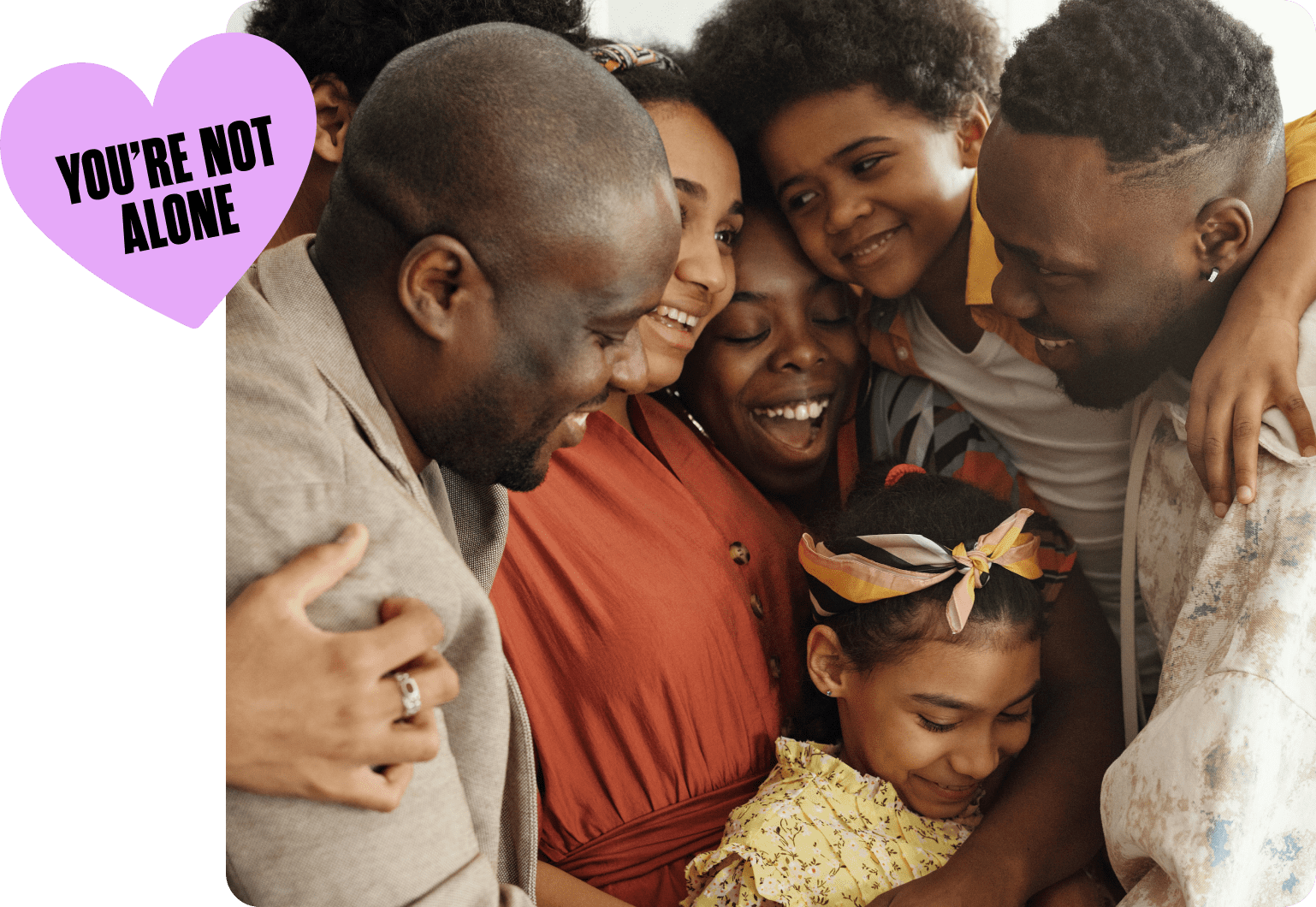Patients
Thinking through your fertility options now will allow you to create the family you might want later.


Cancer & Fertility
Cancer treatment can impact your fertility.
Some cancer treatments, such as chemotherapy, radiation, and surgery, can change your reproductive health and make it harder for you or your partner to get pregnant.
Women are born with all the eggs they will ever produce in their life. Unfortunately, some cancer treatments can damage your eggs, cause you to start menopause early, or harm your reproductive system. That means it can be harder or impossible to get pregnant after cancer treatment, but there are options to help.
Men create sperm throughout their entire lives. But, cancer treatment can still negatively impact your fertility by damaging your testes and interfering with sperm production. However, there are options to help you protect your fertility if you want biological children in the future.

Your Oncofertility
Fertility might be the last thing on your mind when you’re diagnosed with cancer. But taking the time to think through your fertility options and ask questions now will allow you to create the family you might want later. There is no one size fits all approach to reproductive health and family planning. Whether you want to preserve your fertility to have the best possible chances of having a biological child, choose to have non-biological children through adoption or surrogacy, or decide that your family looks perfect as is, your oncofertility is just that – yours.
Do I want children in the future? If yes, do I want biological children or should I consider adopting?
If I want biological children, how long am I comfortable delaying my cancer treatment to preserve my fertility? Am I willing to undergo surgery to preserve my fertility?
If I opt out of preserving my fertility, how can I create the family unit I want? What will my chosen family look like?


Your Fertility Treatment Path
If you have decided to preserve your fertility, it’s important to act quickly to give yourself the best chances at success. Understanding where fertility preservation fits in your cancer diagnosis and treatment plan will help you advocate for yourself.
When you’re ready to get pregnant after treatment, consider preconception counseling. At least 3 months before you or your partner wants to get pregnant, you should meet with an OB/GYN and your oncologist to review your current health, reproductive health history, current and past medications, and any other factors that may impact your ability to get pregnant and have a healthy pregnancy.
If you’ve already started or completed treatment for your cancer, but didn’t preserve your fertility beforehand, you’re not out of luck. Learn more below.

For Women

For Men


Your Options
You have options when it comes to preserving your fertility, but they might be dictated by your diagnosis, age, overall health, or other factors that can impact your reproductive health. A reproductive specialist can help you identify the best option for you.
Find a reproductive specialistOptions for Women
(and anyone assigned female at birth)

![]()
Egg Retrieval
Removing eggs from the ovaries
This procedure uses a vaginal ultrasound to guide a thin needle through your vagina and into your ovary to retrieve eggs. Prior to the egg retrieval, you will need to take fertility drugs to stimulate the development of multiple eggs in order to have as many viable eggs as possible.

Egg or Embryo Freezing
Storing eggs or fertilized embryos
After an egg retrieval, you can store your eggs either unfertilized or fertilized with sperm, aka embryos. The eggs and/or embryos are frozen for storing so you can use them in the future. When you’re ready to use them, the eggs or embryos will be thawed and transferred to your uterus (or someone else’s if you’re using a surrogate).
![]()
Ovarian Tissue Freezing
Removing ovarian tissue
This is a procedure that removes your entire ovary, or pieces of an ovary, during surgery. The removed tissue will then be divided into small pieces and frozen. The outer layer of the ovary, which holds your eggs, will be stored for future fertilization. When you are ready to have a child, the tissue will be thawed and re-implanted into your body, with the hope that eggs in the tissue will mature and release naturally with ovulation, allowing you to get pregnant. The eggs from the tissue could also be matured in a lab, combined with sperm to create an embryo, and then implanted in the uterus.
![]()
Ovarian Suppression
Drugs to protect your eggs
This is an experimental option that is non-surgical and involves taking a medication to block your hormones from stimulating your ovaries. This prevents your eggs from maturing, hopefully protecting them from the effects of cancer treatment.
![]()
Ovarian Transposition
Moving your ovaries to avoid radiation
If you are receiving radiation therapy to the pelvis, this surgery will move your ovaries away from their normal location to lower the amount of radiation they’re exposed to. This may help your ovaries keep working normally during and after treatment.
![]()
Radiation Shielding
Protecting the ovaries from radiation
A shield is placed around the ovaries to protect them from the harmful effects of radiation.
Lauren’s Story
Options for Men
(and anyone assigned male at birth)

![]()
Sperm Banking
Storing your semen
This well known option collects and stores your healthy semen before you undergo cancer treatment. It’s also called sperm cryopreservation or semen storage.
![]()
Testicular Sperm Extraction
Removing sperm from the testes
For patients who aren’t able to produce sperm in their semen, this option takes a biopsy from your testicular tissue to find any available sperm cells, which can then be frozen until you’re ready to have a child.
![]()
Testicular Tissue Freezing
Removing testicular tissue
This is an experimental option for patients who haven’t gone through puberty yet and therefore aren’t producing sperm. The testicular tissue is frozen until it is ready to be used, at which point it is thawed and sperm is removed from the tissue.
Testicular Shielding
Protecting the testes from radiation
A shield is placed around the testes to protect them from the harmful effects of radiation.
David’s Story
Opting Out
Whether you don’t want children period, don’t feel drawn to having biological children, or just don’t want to deal with fertility preservation on top of dealing with cancer, it’s okay to opt out.
If you don’t preserve your fertility, but still want to add children to your family, you have options including adoption, surrogacy, foster to adopt, and embryo adoption. And if you don’t want children at all, that’s cool, too.

Yesemi’s Story
The Talk
Dealing with a cancer diagnosis and treatment is incredibly hard, overwhelming, and confusing. It might feel impossible to also think about fertility right now. But, we don’t want you to regret not considering your future fertility before starting treatment or not being informed if there is a potential for infertility due to treatment. Because you do have options. Here’s how you can take charge and start the conversation with the VIPs in your life right now – your doctor and your partner.
Download The Talk
Talking to your doctor
- How will cancer and my treatment affect my fertility?
- Can you refer me to a fertility preservation specialist so I can learn more?
- Do I have time to pursue fertility preservation before starting treatment?
- Based on my treatment plan, what is my risk of infertility? Are there options that are less detrimental to my reproductive health if I want to have a biological child?
- If me or my partner were to get pregnant, are there any risks we should be aware of to us or our baby based on the treatment I received?
- Are there any risks to the health of my child(ren) based on the type of cancer I have/had?
- Could a future pregnancy increase the chance of my cancer coming back?
- What are my fertility preservation options if I change my mind after I start treatment?
Talking to your partner
- Do you want to have children? Biological or non-biological?
- How do you feel about me pursuing fertility preservation?
- What are your thoughts on the fertility preservation options I have?
- How do you feel about taking care of me while I go through cancer treatment and fertility preservation?
- How will we afford to preserve my fertility? Does our insurance cover fertility treatments?
- If something happens to one of us, what should be done with my/our preserved fertility?
Learn more about insurance, financing, and your rights when it comes to fertility preservation.

Fertility During Cancer
Talking about fertility shouldn’t stop just because you start cancer treatment. Whether you thought about your options before treatment or not, it’s important to continue talking to your cancer care team and a reproductive specialist about how your diagnosis and treatment could be impacting your fertility. When you meet with your doctors, ask them about your current treatment and what your fertility options are. Be proactive about having the fertility talk.


Fertility After Cancer
Whether you underwent fertility preservation prior to treatment or not, it’s important to keep thinking about your fertility after treatment if you want to grow your family. Your preferences may change, your health is always evolving, and medical professionals are always learning more when it comes to oncofertility. A reproductive specialist might suggest that you undergo additional fertility testing after your cancer treatment is complete to understand your current reproductive status.
It’s also important to talk to your cancer care team about how your fertility will be affected now that treatment is over.
- Will I have post-treatment side effects?
- How long should I wait before trying to get pregnant if I want biological kids?
- Are there any cancer-related concerns with my fertility?
- Will my diagnosis or treatment impact my ability to have children?
Quarterbacking your care
Our CareLine provides personalized cancer navigators for people with cancer and their caregivers. Your navigator can help you:
- Get financial & insurance help
- Learn about employment protections
- Apply for social services
- Get mental health support
- Understand fertility options


